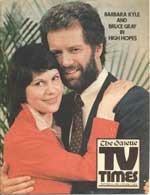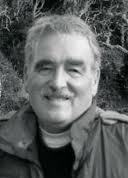
Readers love series. It's a benign addiction. We get to know the continuing characters so well we can't wait to find out what happens to them in the next book.
What happens can sometimes surprise the author. The surprise for me was Fenella Doorn.

Fenella is the heroine of my new historical thriller,
The Queen's Exiles. She's a savvy Scottish-born entrepreneur who salvages ships. This is the sixth book in my Thornleigh Saga which follows a middle-class English family's rise through three tumultuous Tudor reigns.
Fenella played a small but crucial role in
The Queen's Gamble, and then I kind of forgot about her. She didn't appear in the following book,
Blood Between Queens. But when I was planning the story after that Fenella sneaked up me.
She's a determined, passionate, courageous woman, and also rather cheeky - she insisted that I include her in the new story. She reminded me that she had past connections with two exciting men in the series, Adam Thornleigh and Carlos Valverde, which promised some dramatic sparks.
So, I did more than include her in the new book. I made her its star.
That can happen when you write a series - a secondary character can take over. I was glad Fenella did. She offered me an opportunity to create a complex, admirable woman who doesn't fit the ingénue heroine so common in historical fiction.
She's not a young thing; she's thirty. She's not a pampered lady; she rolls up her sleeves running her business of refitting ships. She's attractive but not a smooth-faced beauty; her cheek is scarred from a brute's attack with a bottle years ago. And she's not a virgin; she was once the mistress of the commander of the Edinburgh garrison (he of the bottle attack).
In other words, Fenella is my kind of woman.
But making her the star of the new book in my series meant some serious recalibrating. How could I fit her into the Thornleigh family? Writing a series opens up a vista of opportunities but also a minefield of traps. I'll share a few with you here.
Creating a Series Bible Before writing full time I enjoyed a twenty-year acting career, and one of the TV series I did was a daytime drama called High Hopes. (That's me on the cover of TV Times, below.) The writers on that series kept a story Bible: a record of the myriad details that had to be consistent from show to show concerning the dozens of characters. It's a wise practice for the writer of a series of novels, too.

My Thornleigh Saga books follow a family for three generations so it's easy to forget facts about a character that were covered three or four books ago. That's why I keep a Bible that tracks the characters' ages, occupations, marriages, love affairs, children, ages of their children, homes, character traits, and physical details like color of hair ... and missing body parts! Richard Thornleigh loses an eye in
The Queen's Lady (Book 1) yet in later books I would often start to write things like, "His eyes were drawn to ..." So I keep that Bible near.
Every Book is NewAn author can't assume that readers have read the previous books in the series. My agent, Al Zuckerman (in the photo below) always reminds me of this when I send him the outline for a new book in the Thornleigh Saga. "Many readers won't know what these characters have already been through," he wisely says.

So each book has to give some background about what's happened to the main characters in the preceding books, enough to fill in new readers. However, it can't lay on so much back story that it bores readers who have followed all the books. Getting the balance right is tricky.
I like the way episodes in a TV series start with a helpful recap: "Previously on Downton Abbey..." It's perfect: it refreshes the memory of viewers who've seen the previous episodes, and is just enough to tantalize those who haven't and fill them in. I wish I could have a nice announcer give a recap at the beginning of my Thornleigh books! The point is, each book in a series must stand on its own. It has to be a complete and satisfying story for
any reader.
Consistency Can Yield Rewards When I had a brute cut Fenella Doorn's cheek in
The Queen's Gamble I never expected Fenella to reappear in a future story. Two books later, when I brought her back in
The Queen's Exiles, I could not ignore the fact that she would have a sizable scar on her cheek. So I used that scar to enrich her character.
She had been a beauty at eighteen, relying on men to support her, but when her cut face marred her beauty she realized that it was now up to her to put bread on the table and clothes on her back. I made her aware, even grateful, that the scar freed her from the bonds of beauty; it made her independent. And she became a successful entrepreneur.
Letting Characters AgeIt's hard for readers to believe that a hero can fight off bad guys like a young stud if the decades-long timeline of the books he appears in make him, in fact, a senior citizen. J. K Rowling was smart. She let Harry Potter and his friends grow up.
I've enjoyed doing this with my characters. Through six books I've taken Honor Larke from precocious seven-year-old to wise grande dame as Lady Thornleigh. Her step-son Adam Thornleigh's first big role was in
The Queen's Captive where he was an impetuous seafaring adventurer, but by the time of
The Queen's Exiles Adam has become a mature man, a loyal champion of his friend Queen Elizabeth. He has been through a loveless marriage, adores his two children, and falls hard for Fenella.
I'm grateful that Fenella Doorn insisted I feature her in
The Queen's Exiles. (By the way, that's her on the cover.) The book has been out for just a week and already I'm hearing from readers that they love her.
Fenella is a star.
"Riveting Tudor drama in the bestselling vein of Philippa Gregory."
- USA Today

***
For more about my books, or to sign up for my Newsletter, please visit my website:
http://www.barbarakyle.com/
 newest »
newest »
 newest »
newest »
 Jane wrote: "I'm not terribly fond of the-story-so-far recaps, both in books and on TV. If I'm reading a book and realize I'm in the middle of a series and I've missed some points, I'll go back and read the oth..."
Jane wrote: "I'm not terribly fond of the-story-so-far recaps, both in books and on TV. If I'm reading a book and realize I'm in the middle of a series and I've missed some points, I'll go back and read the oth..." Hi Barbara - Thanks for friending me. As you noted, I am working on a series, too, and trying to determine how to make book 2 stand alone. It's quite the challenge trying to find that balance, to weave in bits of history from book 1 that won't overwhelm the first-time reader. I'm loving it (most of the time). I use a spreadsheet to track the characters ages, looks, significant events, etc. Is that how you do your 'bible'? Your new book - in fact, your series - sounds intriguing. I haven't delved into this particular time period - so many books, so little time - but I may just have to dive in. Fenella is just the type of female character I like to read about.
Hi Barbara - Thanks for friending me. As you noted, I am working on a series, too, and trying to determine how to make book 2 stand alone. It's quite the challenge trying to find that balance, to weave in bits of history from book 1 that won't overwhelm the first-time reader. I'm loving it (most of the time). I use a spreadsheet to track the characters ages, looks, significant events, etc. Is that how you do your 'bible'? Your new book - in fact, your series - sounds intriguing. I haven't delved into this particular time period - so many books, so little time - but I may just have to dive in. Fenella is just the type of female character I like to read about.  Charlene wrote: "Hi Barbara - Thanks for friending me. As you noted, I am working on a series, too, and trying to determine how to make book 2 stand alone. It's quite the challenge trying to find that balance, to w..."
Charlene wrote: "Hi Barbara - Thanks for friending me. As you noted, I am working on a series, too, and trying to determine how to make book 2 stand alone. It's quite the challenge trying to find that balance, to w..." Barbara wrote:Yes, Char, your spreadsheet for characters' traits, histories, etc. is exactly the kind of "tracking" that's needed. I see that you're at work on both a historical series and a contemporary one.
Barbara wrote:Yes, Char, your spreadsheet for characters' traits, histories, etc. is exactly the kind of "tracking" that's needed. I see that you're at work on both a historical series and a contemporary one. 








And recapping on TV shows drives me bananas. It was no doubt essential back in the days when if you missed an episode, you missed it. But now we can buy entire seasons at once, why do it? My favorite books and shows are the ones that seem to say to the reader/viewer "Come on, you're intelligent, now keep up."
Great example: Game of Thrones. Cast of hundreds, dozens of locations, complex plot--and millions of fans, who re-watch and re-read to ensure they're au fait with all the plot points. I bought the TV series, am listening to the books, and will eventually buy the print version. Those are series books that definitely don't stand on their own, but if a series is compelling enough, readers will stick with it.
And real history is horribly complex. Look at your own favorite era, that of the Tudors. Families, alliances, politics, and all those characters called Henry, Thomas, Elizabeth or Margaret. Never stops the fans from reading about them!
I've nothing against the trend toward writing "series" linked in some way but with different main characters, but to me they're more like standalone books and I don't need to be told the backstory of secondary characters. Yet I prefer a straight series with the same main characters, who grow and change over time.